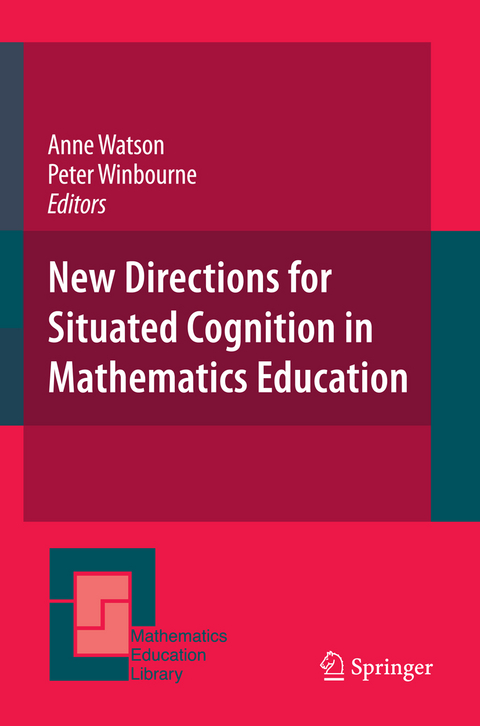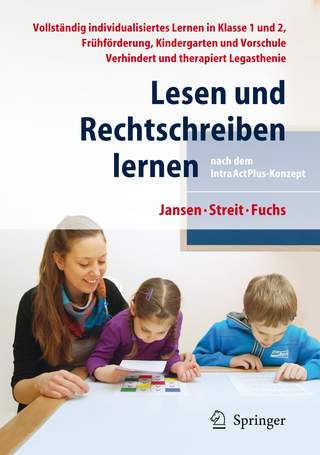
New Directions for Situated Cognition in Mathematics Education
Springer-Verlag New York Inc.
978-1-4419-4398-9 (ISBN)
In this book a dynamic view of knowledge is taken by all the authors. Although knowledge is considered what is produced in learning environments, each chapter offers a different perspective on its relationship to the individual, group, activity, historical conventions, and authoritarian views of meaning.
New Directions for Situated Cognition in Mathematics Education provides a resource for educators, researchers and students to approach situated cognition through an organized and diverse source.
Anne Watson is Reader in Mathematics Education at the University of Oxford. Before that she taught for many years in maintained secondary schools which served socially diverse areas. She now works in teacher education, and her work with students, and in local schools, and her research is characterised by a concern for social justice through education. In particular, the nature of mathematics classrooms and adolescents’ relationships within them are a central concern. She has published numerous books, articles and papers for both professional and academic audiences and is often asked to talk to national and international audiences of researchers and practitioners. Peter Winbourne currently lectures in mathematics education at the London South Bank University. After a long career teaching mathematics in inner city multicultural maintained schools, his passion for mathematics and social equity took him into teacher education, preparing people to work in similar schools. His interests developed from specific focus on the uses of new technologies to support learning to answering difficult questions such as why people should bother to learn at all. In answering these questions he has developed his understanding and ideas of theories of situated cognition, seeing these as illuminating the experiences of individuals as they become the people they are going to be.
School Mathematics As A Developmental Activity.- Participating In What? Using Situated Cognition Theory To Illuminate Differences In Classroom Practices.- Social Identities As Learners And Teachers Of Mathematics.- Looking For Learning In Practice: How Can This Inform Teaching.- Are Mathematical Abstractions Situated?.- ‘We Do It A Different Way At My School’.- Situated Intuition And Activity Theory Fill The Gap.- The Role Of Artefacts In Mathematical Thinking: A Situated Learning Perspective.- Exploring Connections Between Tacit Knowing And Situated Learning Perspectives In The Context Of Mathematics Education.- Cognition And Institutional Setting.- School Practices With The Mathematical Notion Of Tangent Line.- Learning Mathematically As Social Practice In A Workplace Setting.- Analysing Concepts of Community of Practice.- ‘No Way is Can’t’: A Situated Account of One Woman’s Uses and Experiences of Mathematics.
| Erscheint lt. Verlag | 29.11.2010 |
|---|---|
| Reihe/Serie | Mathematics Education Library ; 45 |
| Zusatzinfo | XII, 360 p. |
| Verlagsort | New York, NY |
| Sprache | englisch |
| Maße | 155 x 235 mm |
| Themenwelt | Schulbuch / Wörterbuch |
| Geisteswissenschaften ► Psychologie ► Pädagogische Psychologie | |
| Mathematik / Informatik ► Mathematik | |
| Sozialwissenschaften ► Pädagogik ► Erwachsenenbildung | |
| Sozialwissenschaften ► Pädagogik ► Schulpädagogik / Grundschule | |
| Sozialwissenschaften ► Pädagogik ► Vorschulpädagogik | |
| ISBN-10 | 1-4419-4398-6 / 1441943986 |
| ISBN-13 | 978-1-4419-4398-9 / 9781441943989 |
| Zustand | Neuware |
| Haben Sie eine Frage zum Produkt? |
aus dem Bereich


